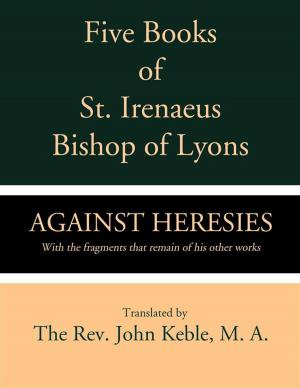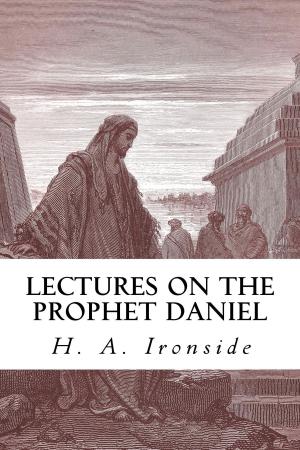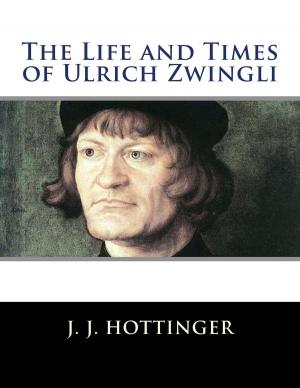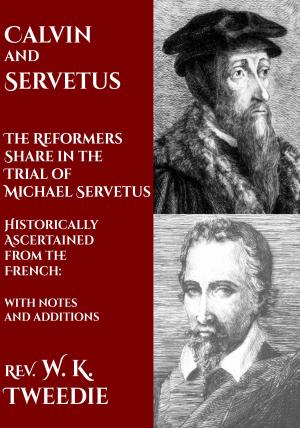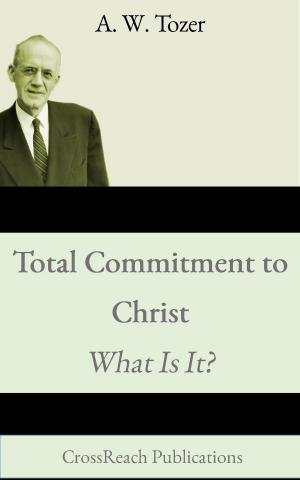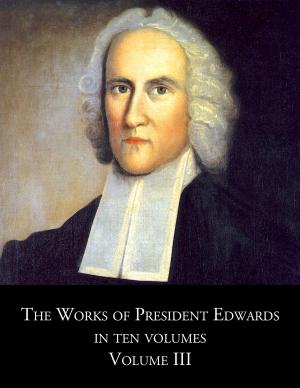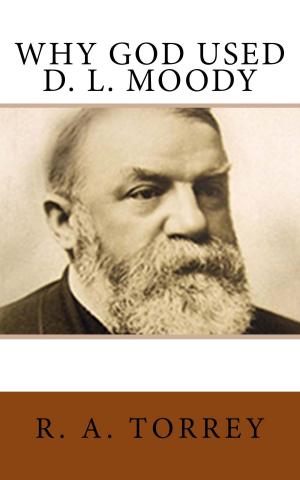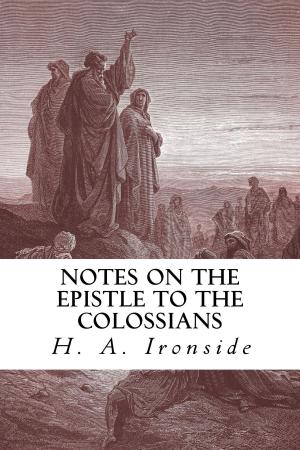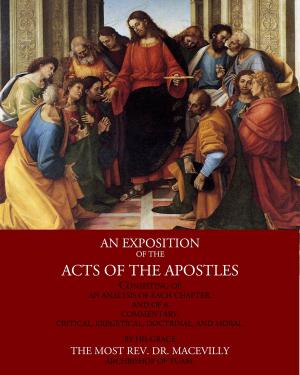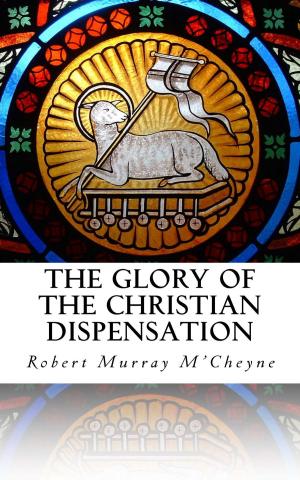Cambridge Sermons
Preached before the University in St. Mary's Church
Nonfiction, Religion & Spirituality, Christianity, Christian Sermons, Christian Literature| Author: | C. H. Prior | ISBN: | 1230001930955 |
| Publisher: | CrossReach Publications | Publication: | September 24, 2017 |
| Imprint: | Language: | English |
| Author: | C. H. Prior |
| ISBN: | 1230001930955 |
| Publisher: | CrossReach Publications |
| Publication: | September 24, 2017 |
| Imprint: | |
| Language: | English |
This volume is the outcome of a proposal made to the Editor that he should select and prepare for publication, with the consent of the authors, a series of University Sermons, recently preached at Cambridge. In making his selection from the sermons of the academical years 1889 to 1892, the Editor has confined himself to sermons preached during Full Term, and by the wish of the Publishers he has referred to those authors only who are members of the University of Cambridge. The main principle that has guided his choice, within these limits, has been to select those sermons which, in his opinion, are most characteristic of the University pulpit, as distinguished from such a pulpit as that of St. Paul’s Cathedral, or that of a large parish Church. Notwithstanding the diversity of authorship, a certain congruity may be looked for between sermons in which the peculiar character and circumstances of the hearers have been kept in view; and, in order to enhance the interest of the volume, the Editor has endeavoured to arrange the sermons according to a definite plan.
Having in mind the earlier portion of the first Chapter of St. Peter’s Second Epistle, he has placed first a sermon (I.) which opens out a wide range of vision, and exhorts to a self-consecrating exercise of faculties; and by the next eight sermons he has hoped to illustrate the successive steps in the development of the Christian life or its daily discipline, as seen from the standpoint of a University. These steps find expression (Sermons II. to IX.) in faith made reasonable and inspiring through the philosophy of Sonship,—in virtue as exemplified and ennobled in the varied excellences of University life,—in knowledge guarded from shallowness and want of sympathy through its prayer for spiritual insight,—in temperance and self-control welcoming the discipline of Christian obedience to authority and Christian loyalty to duty,—in patience that can pierce through difficulties by its abiding trust in God’s purpose and its unfaltering outlook of hope,—in godliness that declares its consciousness of God’s kingdom and its allegiance to its Lord and King,—in love of the brethren that under present social conditions embodies in active form the principle of love,—and in love that finds its energy and its consummation in the presence of the God of peace and love.
The remaining sermons (X. to XIV.) have been selected with a view to present-day thoughts and questions in order to show the characteristic attitude of the University, as expressed by her preachers, towards Christian doctrine as an enduring and living Creed,—towards the Church as a living Body whose principles are declared through the characters of Christian men,—towards the Old Testament as a living Witness fulfilled in Christ and in His Church,—towards Scripture in general as a living Word illumined by the Spirit of Truth,—and lastly towards missionary effort through self-sacrifice as the true evidence of living force and fruitfulness.
This volume is the outcome of a proposal made to the Editor that he should select and prepare for publication, with the consent of the authors, a series of University Sermons, recently preached at Cambridge. In making his selection from the sermons of the academical years 1889 to 1892, the Editor has confined himself to sermons preached during Full Term, and by the wish of the Publishers he has referred to those authors only who are members of the University of Cambridge. The main principle that has guided his choice, within these limits, has been to select those sermons which, in his opinion, are most characteristic of the University pulpit, as distinguished from such a pulpit as that of St. Paul’s Cathedral, or that of a large parish Church. Notwithstanding the diversity of authorship, a certain congruity may be looked for between sermons in which the peculiar character and circumstances of the hearers have been kept in view; and, in order to enhance the interest of the volume, the Editor has endeavoured to arrange the sermons according to a definite plan.
Having in mind the earlier portion of the first Chapter of St. Peter’s Second Epistle, he has placed first a sermon (I.) which opens out a wide range of vision, and exhorts to a self-consecrating exercise of faculties; and by the next eight sermons he has hoped to illustrate the successive steps in the development of the Christian life or its daily discipline, as seen from the standpoint of a University. These steps find expression (Sermons II. to IX.) in faith made reasonable and inspiring through the philosophy of Sonship,—in virtue as exemplified and ennobled in the varied excellences of University life,—in knowledge guarded from shallowness and want of sympathy through its prayer for spiritual insight,—in temperance and self-control welcoming the discipline of Christian obedience to authority and Christian loyalty to duty,—in patience that can pierce through difficulties by its abiding trust in God’s purpose and its unfaltering outlook of hope,—in godliness that declares its consciousness of God’s kingdom and its allegiance to its Lord and King,—in love of the brethren that under present social conditions embodies in active form the principle of love,—and in love that finds its energy and its consummation in the presence of the God of peace and love.
The remaining sermons (X. to XIV.) have been selected with a view to present-day thoughts and questions in order to show the characteristic attitude of the University, as expressed by her preachers, towards Christian doctrine as an enduring and living Creed,—towards the Church as a living Body whose principles are declared through the characters of Christian men,—towards the Old Testament as a living Witness fulfilled in Christ and in His Church,—towards Scripture in general as a living Word illumined by the Spirit of Truth,—and lastly towards missionary effort through self-sacrifice as the true evidence of living force and fruitfulness.



